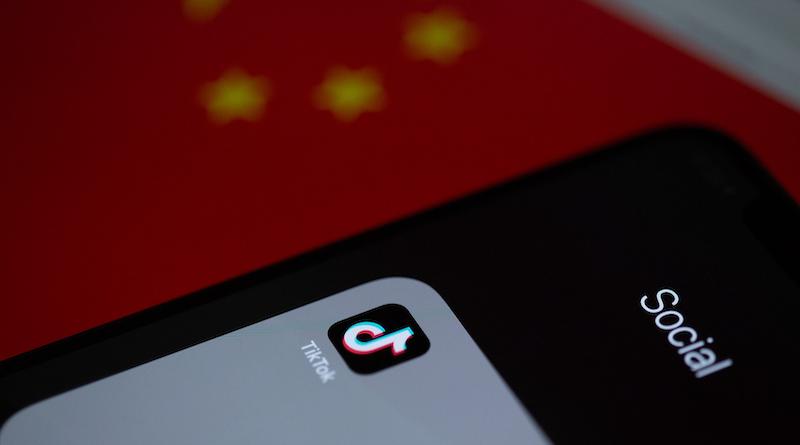US Lawmakers Introduce Latest TikTok Ban Bill
By RFA
By Alex Willemyns
A bipartisan group of U.S. lawmakers on Wednesday introduced a new bill that would allow for a ban on TikTok if its Chinese parent company ByteDance does not divest from the social media app.
Led by Rep. Mike Gallagher, a Republican from Wisconsin and chairman of the House Select Committee on the Chinese Communist Party, the lawmakers said the bill would allow the U.S. president to ban foreign-owned social media apps deemed national security threats.
But the owners of those apps would be given a grace period to sell the apps to American owners to avoid the ban, they said.
“This bill is not a ban, and it’s really not about TikTok. This bill is a choice,” said Rep. Raja Krishnamoorthi, a Democrat from Illinois and his party’s top member on the committee, at a press conference.
“It’s a choice for ByteDance, as well as any other social media app controlled by a foreign adversary,” he said. “ByteDance has repeatedly used the TikTok platform in ways that undermine not just American national security, but the interests of its users.”
The bill, which will be formally introduced to the House of Representatives on Thursday, is similar to one introduced by the Senate Intelligence Committee last year that was backed by the Biden administration. The White House called the new bill “welcome.”
Foreign media control
Both Gallagher and Krishnamoorthi told reporters that it is not possible for ByteDance, as it claims, to operate independently of China’s government and to keep user data secure from authorities.
Krishnamoorthi noted that TikTok editor-in-chief Zhang Fuping, for instance, is also the general-secretary of the company’s Communist Party of China cell, which acts as the official liaison with Beijing.
“In China,” Gallagher added, “there is no such thing as a private company. The ruling authority, the Chinese Communist Party, and its leader Xi Jinping, have their hands deep in the inner workings of the company with devastating consequences for our personal freedoms.”
He said that meant America’s most popular social media app was a propaganda threat, likening the situation to a hypothetical one in which Soviet officials ran the New York Times, Washington Post and network TV stations ABC and NBC at the height of the Cold War in the 1960s.
“TikTok’s parent company, ByteDance, is legally required to support the work of the Chinese Communist Party,” he said. “And under ByteDance’s ownership structure, the Chinese government has the ability to manipulate TikTok’s algorithm surveillance.”
ByteDance has strenuously denied claims it takes orders from Beijing, with its CEO last year telling Congress that the company was prepared to undergo auditing of its servers to prove user data was secure.
Liu Pengyu, the spokesperson for the Chinese Embassy in Washington, told Radio Free Asia on Wednesday he believed the bill was the latest attempt to “deliberately overstretch the concept of national security to wear down Chinese enterprises.”
He denied Beijing influenced TikTok’s American operations.
“The company concerned is a private enterprise that conducts business in the U.S. in accordance with market principles and international rules and complies with U.S. laws,” Liu said in an email, appealing for “fair, just and non-discriminatory treatment.”
Biotech ban
The TikTok bill was not the only bill before Congress on Wednesday that could ban Chinese companies from a U.S. presence.
A Senate committee separately approved 11-to-1 a bill that would ban U.S. federal agencies from working with Chinese biotech firms accused of surreptitiously collecting Americans’ genetic information.
That bill passed with bipartisan support in minutes, with only Sen. Rand Paul, a Republican from Kentucky, voting against it, after explaining he was concerned anti-China sentiment was clouding good policy.
There was an American company that “also does business in China that really loves this bill because it bans their competition,” Paul said, adding that he had “no love lost for some of these companies” as one of the most vocal critics of China’s collection of genetic data.
“You know, over the last year or two, I’ve been quite concerned with what’s been going on in China with DNA synthesis with the possibility that the [COVID-19] virus came from the lab in Wuhan,” Paul said.
“I do worry, though, that as our anger builds with China, that this idea of disengaging really has an overlay of provincial interests,” he added, cautioning that some bills were verging on “protectionism.”
The most prominent of the firms targeted by the bill, WuXi Apptec, last month denied collecting genetic data and rejected the claim it poses a national security threat due to its own ties to China’s government.

